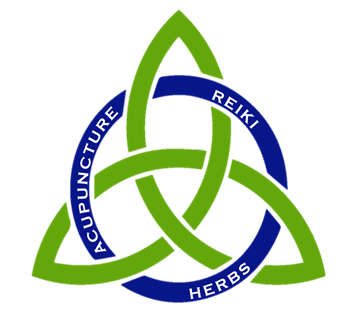Ancient Healing for Modern Migraines
Migraines are more than just headaches—they’re complex neurological events that can disrupt daily life. While modern medicine offers various treatments, many individuals seek holistic approaches to address the root causes of their discomfort. Traditional Chinese Medicine (TCM), encompassing acupuncture and herbal remedies, provides time-tested methods that focus on restoring balance within the body. By considering factors like genetics, hormonal fluctuations, dietary triggers, and emotional stressors, TCM offers a comprehensive path to migraine relief. In this blog, we’ll explore how these ancient practices can complement contemporary treatments to alleviate migraine symptoms effectively.
Traditional Chinese Medicine treats the root cause contributing to the migraine patterns and treats the person as a whole. There is no separation in the systems of how the body works to try to balance itself and it often speaks in the language of symptoms. These symptoms catch our attention, so we can try to navigate and heal what is out of balance.
Understanding Migraines vs. Headaches
Headaches are common and can result from various causes like stress, dehydration, or tension. They often present as a dull, aching sensation across the head.
Migraines, however, are a specific type of headache disorder and neurological event characterized by:
-
Throbbing or pulsating pain, typically on one side of the head
-
Nausea and vomiting
-
Sensitivity to light, sound, or smells
-
Visual disturbances (auras), such as flashes of light or blind spots
-
Duration ranging from 4 to 72 hours
Acupuncture: Ancient Needles, Modern Relief
Acupuncture involves inserting fine needles into specific points on the body to balance the flow of energy, or “Qi”, which translates to balancing the gases across our tissues such as oxygen, nitric oxide, etc. In the context of migraines, acupuncture is believed to: Modulate pain pathways in the nervous system, Reduce inflammation, and Improve blood circulation.
Research Highlights:
-
A systematic review found that acupuncture can reduce the frequency of migraine attacks and is more effective than no treatment or routine care. (pmc.ncbi.nlm.nih.gov)
-
Another study demonstrated that acupuncture was more effective than the medication flunarizine in decreasing the number of migraine days. (frontiersin.org)
-
The American Migraine Foundation notes that up to 59% of individuals receiving acupuncture experience a 50% or greater reduction in migraine frequency. (americanmigrainefoundation.org)
Chinese Herbal Medicine: Nature’s Pharmacy
TCM utilizes various herbs to address the root causes of migraines, aiming to restore balance within the body. Commonly used herbs include:
-
Chuan Xiong (Ligusticum chuanxiong): Promotes blood circulation and alleviates pain.
-
Bai Zhi (Angelica dahurica): Dispels wind and alleviates pain.
-
Tian Ma (Gastrodia elata): Calms the liver and extinguishes wind.
Research Highlights:
-
A meta-analysis of 18 randomized controlled trials concluded that oral Chinese herbal medicine is more effective than placebo in reducing migraine frequency and pain severity. (pubmed.ncbi.nlm.nih.gov)
-
Another study observed that Chinese herbal medicine improved patients’ quality of life and potentially reduced comorbid anxiety when used continuously for 28 days or more. (frontiersin.org)
-
practice and supported by contemporary research, these therapies offer a holistic approach to managing this debilitating conditions.
-
TCM Herbal Medicine for Migraine Relief: A randomized controlled trial investigated the efficacy of a Chinese herbal formula, “Xiao Yao San,” in treating migraine without aura. The study, published in the Journal of Traditional Chinese Medicine, found that Xiao Yao San significantly reduced the frequency and intensity of migraine attacks compared to the control group.
These herbs are usually combined in well timed and tested formulas customized to the needs of the person needing migraine relief.
🧘 Integrating TCM into Migraine Management
Combining acupuncture and herbal medicine offers an integrative, holistic approach to migraine management. Benefits include:
-
Reduced frequency and severity of migraine attacks (1)
-
Improved quality of life
-
Potential reduction in medication use
Before starting any new treatment, it’s essential to consult with Licensed Acupuncturist to ensure safety and appropriateness, especially when combining TCM with conventional therapies. We want to make sure there are not any interactions with herbal medicine and prescribed medication, or current supplements. We often do co-care with your provider to help optimize your care and stay on the same page for your health.
Acupuncture and Chinese herbal medicine present promising options for those seeking relief from migraines. Rooted in centuries of practice and supported by contemporary research, these therapies offer a holistic approach to managing this debilitating conditions.

